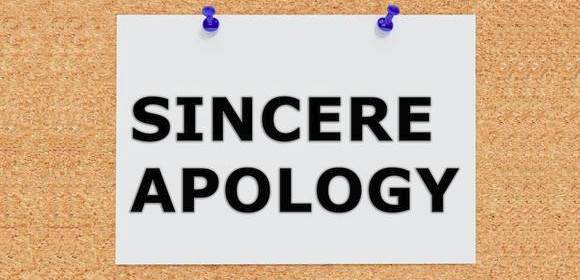The Pitfalls of Over-Apologizing: Finding the Balance in a Genuine Apology
In today’s society, apologies have become a common currency of social interaction. However, some individuals tend to apologize excessively, offering apologies for things that require no apology at all. On the other hand, some people underdo their apologies, leaving the hurt party feeling dismissed and unheard. Finding the right balance in delivering a genuine apology is crucial for maintaining healthy relationships. In this article, we will explore the downsides of over-apologizing, the problems associated with underdoing apologies, and the art of delivering a good enough apology.
The Burden of Over-Apologizing:
Excessive apologies can stem from various factors, such as low self-esteem, a desire to avoid criticism, or an ingrained need to please others. Women, in particular, may be prone to over-apologizing due to societal expectations. However, over-apologizing can create distance in relationships and disrupt the natural flow of conversation. It is important to save apologies for situations that genuinely require them to maintain their significance and effectiveness.
Empathy without Overdoing It:
A genuine apology requires empathy and remorse, but it is essential not to overdo it. Excessive expressions of guilt and remorse can unintentionally burden the hurt party and shift the focus away from their experience. It is crucial to strike a balance between conveying authentic sorrow and allowing the other person the space to express their own emotions and heal. The hurt party’s pain and anger should be the central focus of a genuine apology.
The Danger of Underdoing Apologies:
Underdoing an apology can be equally problematic, leaving the hurt party feeling unheard and undervalued. A weak or insincere apology that fails to acknowledge the depth of the hurt caused can further damage relationships. Additionally, failing to make restitution or take necessary actions to rectify the situation can diminish the impact of an apology. A good apology goes beyond mere words and includes taking responsibility and making amends.
The Good Enough Apology:
Apologies are not one-size-fits-all; different individuals have distinct needs when it comes to accepting apologies. Some may require specific words or acknowledgments, while others value promises of change. A good enough apology should be direct, personal, unambiguous, and devoid of excuses or qualifications. It should demonstrate a sincere acceptance of responsibility, express remorse, offer restitution if appropriate, and assure that the offense will not be repeated.
The Complexities of Healing Large Hurts:
For significant transgressions, a simple apology may not be sufficient to mend the damage caused. High-stakes situations often demand a more involved approach, requiring the offending party to actively listen and engage with the hurt party’s anger and pain. Wholehearted listening and a willingness to sit on the “hot seat” multiple times are vital for rebuilding trust and facilitating healing.
Apologies are essential for maintaining healthy relationships, but it is crucial to strike the right balance. Over-apologizing can dilute the impact of apologies and disrupt interpersonal dynamics, while underdoing apologies can leave the hurt party feeling dismissed and invalidated. Finding the middle ground, offering genuine remorse without overdoing it, and taking appropriate actions to make amends are key to delivering a good enough apology. By understanding the complexities involved in apologizing, we can foster stronger connections and promote healing in our relationships.
